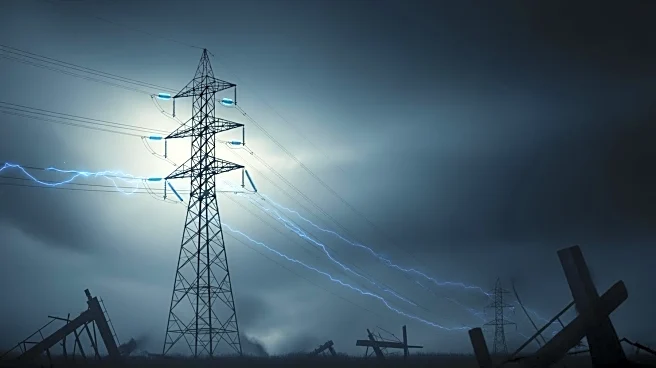Rapid Read • 7 min read
The integration of artificial intelligence (AI) across various industries is significantly increasing power demands, posing challenges for energy grids. According to a McKinsey survey, 78% of organizations are utilizing AI, leading to a projected doubling of global data center power demands by 2030. The Joint Forces Training Base (JFTB) in Los Alamitos recently demonstrated energy resilience by maintaining operations during a grid outage using a microgrid system. This event underscores the need for robust energy infrastructure to support AI-driven services, especially in mission-critical sectors like healthcare and transportation.
AD
The growing reliance on AI technologies necessitates a reevaluation of energy infrastructure to prevent disruptions in critical services. As AI applications expand, the power sector must adapt to meet increased energy demands, ensuring reliability and resilience. This situation presents opportunities for the power industry to innovate and collaborate with other sectors to develop sustainable energy solutions. Failure to address these challenges could lead to significant operational risks for industries dependent on continuous power supply.
The power sector is expected to play a pivotal role in enhancing energy resilience by supporting the development of diversified energy solutions, such as microgrids and advanced energy storage systems. Public-private partnerships may emerge as a strategy to fund and implement these initiatives. As AI continues to evolve, ongoing collaboration between energy providers and critical service sectors will be essential to ensure uninterrupted operations.
The push for energy resilience in the face of AI's growing power demands highlights broader implications for environmental sustainability and energy policy. The transition to more resilient energy systems could accelerate the adoption of renewable energy sources, contributing to climate change mitigation efforts. Additionally, the need for energy security may drive regulatory changes and investments in infrastructure upgrades.
AD
More Stories You Might Enjoy












